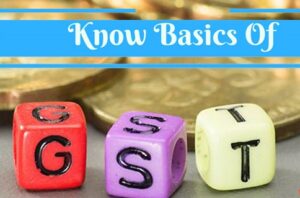![]()

Introduction
Salt is one of the most essential commodities in daily life, used in cooking, food preservation, and even industrial applications. Given its significance, a common question arises: Are we paying tax for salt in India? This article explores the taxation policy on salt, its benefits, limitations, applications, and other related aspects.
Definition
Salt, chemically known as sodium chloride (NaCl), is a mineral necessary for human survival.Households and industries extensively use it. India has a long history of salt production, with the famous Salt March led by Mahatma Gandhi against British-imposed salt taxes.
Are We Paying Tax for Salt in India?
As per the Goods and Services Tax (GST) framework, common edible salt is exempt from GST, meaning no tax is levied on it. However, the government charges a 5% GST on certain types of processed or industrial salt based on their usage and processing levels.
User Intent: Why People Ask About Salt Tax?
- Historical Significance: India has a history of salt taxation during British rule.
- Financial Awareness: Consumers want to know if they are unknowingly paying tax on essential goods.
- Industrial Use: Businesses dealing with processed or specialty salts want clarity on taxation.
Benefits of No Tax on Salt
- Affordable for Everyone: Essential commodities should be accessible without additional costs.
- Encourages Health & Nutrition: Salt is crucial for health, and taxation could affect lower-income groups.
- Historical Respect: The removal of salt tax aligns with the sentiment of the Salt Satyagraha.
- Stable Prices: Exemption from tax prevents frequent price hikes.
- Ease of Business for Producers: Salt manufacturers don’t have to deal with complex tax filings.
Usage of Salt
Multiple sectors widely use salt:
- Households: Cooking and food preservation.
- Industries: Chemical manufacturing, leather processing, and textile production.
- Healthcare: Saline solutions, oral rehydration, and medicinal applications.
- Agriculture: Used in animal feed and soil treatment.
Limitations & Exceptions
- Processed & Industrial Salt: Some types of refined salts, iodized salts, and industrial-grade salts are subject to 5% GST.
- Imported Salt: In some cases, imported specialty salts may attract customs duty.
- Hidden Costs: While basic salt is tax-free, authorities might tax flavored and premium salts.
Application of Salt in Taxation Framework
The GST council has categorized salt under the exempted list, meaning no tax is levied on ordinary edible salt. However, the government might tax salts used for industrial purposes or those with added flavors, minerals, or processing at 5% under GST regulations.
Cooperative Table: Tax Status of Different Types of Salt in India
| Type of Salt | Tax Rate (GST) |
|---|---|
| Common Edible Salt | 0% (Tax-Free) |
| Iodized & Fortified Salt | 0% (Tax-Free) |
| Rock Salt & Black Salt | 0% (Tax-Free) |
| Processed & Industrial Salt | 5% GST |
| Specialty/Flavored Salt | 5% GST |
Conclusion
To summarize, basic edible salt is not taxed in India, ensuring affordability and accessibility. However, specialized salts, industrial salts, and processed salts might attract 5% GST. Understanding these nuances helps both consumers and businesses make informed decisions.
10 FAQs About Salt Tax in India
- Is there a tax on common edible salt in India?
- No, common edible salt is exempt from GST.
- Does flavored or mineral-rich salt attract tax?
- Yes, some specialty salts may attract 5% GST.
- What is the tax rate for industrial salt?
- Industrial and processed salts are taxed at 5% GST.
- Is imported salt taxed in India?
- Yes, imported salts may be subject to customs duty and GST based on their category.
- Are brands selling salt subject to taxation?
- If the salt is standard edible salt, no tax applies. If it’s processed or enhanced, 5% GST may be applicable.
- What is the GST rate for iodized salt?
- Iodized salt is exempt from GST, like common salt.
- Is black salt or rock salt taxed?
- No, these salts are tax-free under GST.
- Has salt ever been taxed in India historically?
- Yes, during British rule, salt was heavily taxed, leading to protests like the Salt March.
- Does packaged salt have GST?
- As long as it is plain edible salt, it remains tax-free. If enhanced, it may attract 5% GST.
- What is the purpose of taxing industrial salt?
- Industrial salt is a raw material for various chemical and industrial processes, making it taxable at 5% GST.
Understanding the taxation policy on salt ensures clarity for both consumers and businesses. While the government exempts essential salt from taxes, it imposes minimal taxation on processed or industrial salts. This policy maintains affordability while ensuring a fair tax structure for commercial applications.
 For further details access our website https://vibrantfinserv.com/
For further details access our website https://vibrantfinserv.com/
To visit: https://www.mca.gov.in/
Contact: 8130555124, 8130045124
Whatsapp: https://wa.me/918130555124
Mail ID: operations@vibrantfinserv.com
Web Link: https://vibrantfinserv.com
FB Link: https://fb.me/vibrantfinserv
Insta Link: https://www.instagram.com/vibrantfinserv2/
